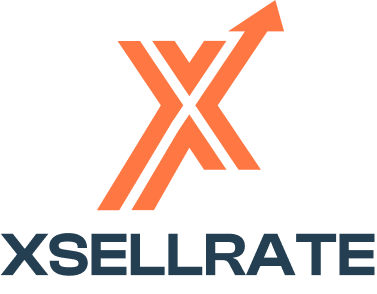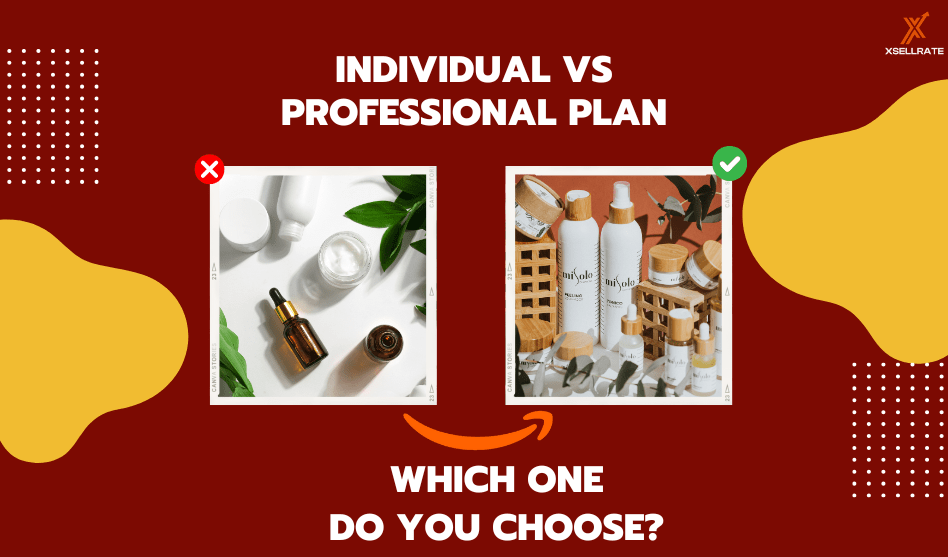Introduction
Amazon’s global reach has opened a world of opportunities for entrepreneurs and businesses alike. However, to succeed on the platform, it’s crucial to choose the right Amazon selling plan.
Are you a casual seller with a handful of items, or are you looking to scale a large inventory? This article will help you navigate the complexities of Amazon selling plans and determine which option is best aligned with your business goals.
Understanding the Basics of Amazon Selling Plans
Before diving into the specifics, let’s establish what Amazon selling plans are and why your choice matters.
What Are Amazon Selling Plans?
Amazon offers two main types of Amazon selling plans:
1. Individual Seller Plan: Designed for those who sell fewer items, typically on a casual or part-time basis.
2. Professional Seller Plan: Tailored for high-volume sellers or businesses with established operations looking to maximize their potential on the platform.
Both plans provide access to Amazon’s vast customer base, but the fee structures and available tools vary significantly.
Why Choosing the Right Plan Matters
Selecting the right plan isn’t just about managing costs—it’s about setting the foundation for your business growth. The plan you choose affects:
1. Fee structures: You’ll encounter different cost models (per-item fees versus a fixed monthly fee).
2. Access to tools: Advanced selling features, reporting, and promotional opportunities differ between plans.
3. Scalability: As your business expands, the limitations of one Amazon selling plan might hinder growth.
Understanding these factors will help you align your Amazon selling plan with your current needs and long-term objectives.
Deep Dive: The Individual Amazon Selling Plan
The Individual Amazon selling plan is ideal for new sellers or those with a lower volume of sales.
The Individual plan is best suited for those who are just starting out on Amazon or have a modest inventory. With no monthly subscription fee, it’s an attractive option for casual sellers.
Key Features
1. No Monthly Subscription Fee: Instead of a flat fee, you pay a per-item selling fee, which can be beneficial if your sales volume is low. In the UK, the individual plan cost £0.75 (excl. VAT) per item.
2. Basic Selling Tools: Access to essential features that allow you to list and manage products.
3. Limited Access to Advanced Features: Certain functionalities, such as bulk listings or API integrations, are restricted.
Know more about Amazon selling plan: https://sell.amazon.co.uk/pricing#selling-plans
Pros and Cons of Individual Amazon Selling Plan
Pros:
- Lower upfront costs, as you only pay fees when you make a sale.
- Flexible for those testing the waters of e-commerce without a significant financial commitment.
Cons:
- The per-item fee can add up quickly if you start selling large quantities.
- Fewer tools and limited insights restrict growth if you plan to scale.
Ideal Use Cases of Individual Seller Plan
A. Sellers with a limited number of listings.
B. Individuals or small businesses testing the market.
C. Those not ready to commit to a monthly fee or extensive inventory management.
Deep Dive: The Amazon Professional Selling Plan
For established businesses or those anticipating high sales volumes, the Amazon Professional selling plan is a robust choice. The Professional seller plan is tailored for sellers who want to expand their presence on Amazon. This plan comes with a monthly subscription fee, but in return, it offers enhanced features designed for growth.
Key Features
A. Fixed Monthly Subscription Fee: Instead of per-item charges, you pay a predictable monthly fee, which can be more cost-effective for high-volume sellers. In the UK, the monthly fee for the Amazon Professional Selling Plan is £25 (excl. VAT) per month.
B. Advanced Selling Tools: Access to detailed sales reports, bulk listing capabilities, and API integrations.
C. Enhanced Visibility: Eligibility for features such as top placement on product pages and participation in additional selling programs.
Pros and Cons of an Amazon Professional Selling Plan
Pros:
A. Cost-effective for sellers with high sales volumes due to the lower per-item fees.
B. Advanced tools and comprehensive reports that help optimize your listings and manage inventory efficiently.
C. Enhanced branding opportunities that can boost customer trust and conversion rates.
Cons:
A. The fixed monthly fee might not be justifiable for those with minimal sales.
B. Requires a more serious commitment to selling on Amazon, making it less ideal for casual or occasional sellers.
Ideal Use Cases of Amazon Professional Selling Plan
A. Businesses with a high volume of listings.
B. Sellers looking to leverage detailed analytics and bulk management features.
C. Enterprises that plan on scaling operations and need robust tools to support growth.
Comparison: Individual vs. Professional Selling Plans
Let’s take a closer look at how the two plans stack up against each other.
Cost Analysis
A. Individual Amazon Selling Plan: No monthly fee, but incurs a per-item fee. Best for low-volume sales.
B. Professional Amazon Selling Plan: Fixed monthly fee, which becomes more economical as your sales volume increases.
| Feature | Individual Plan | Professional Plan |
|---|---|---|
| Monthly Fee | No Fees | Fixed Fee (Varies by Country) |
| Per Item Fee | Yes | Lower or None for Many items |
| Advanced Tools | Limited | Extensive |
| Bulk Listings | Not Available | Available |
Feature Comparison
A. Individual Plan: Basic listing capabilities and minimal reporting.
B. Professional Plan: Advanced analytics, bulk listings, API access, and enhanced promotional features.
Scalability Considerations
If your business is poised for growth, the Amazon Professional Selling plan offers the tools and insights to scale efficiently. Conversely, the Individual plan may suffice for testing the market or managing a smaller inventory.
Decision-Making Factors
When deciding between the two:
A. Sales Volume: High-volume sellers benefit from the fixed fee of the Amazon Professional selling plan.
B. Budget: If upfront costs are a concern, the Individual plan may be the right starting point.
C. Business Goals: Consider whether you plan to scale and need the advanced functionalities offered by the Amazon Professional selling plan.
Real-World Examples and Case Studies
Case Study 1: The Casual Seller
Jessica started selling handmade jewelry on Amazon as a hobby. With only a few listings and a limited budget, she opted for the Individual plan. This allowed her to test the market without incurring a fixed monthly cost. As her products gained popularity, she was able to adapt her strategy based on real-time feedback and sales data.
Case Study 2: The Growing Business
Mark runs an online store specializing in tech accessories. Initially starting with the Individual plan, his sales volume quickly increased. Realizing the limitations of his current plan, he upgraded to the Amazon Professional selling plan. The switch enabled him to leverage bulk listings and detailed analytics, resulting in a 35% increase in efficiency and a significant boost in overall sales.
Tips for Making the Transition Between Selling Plans
When to Upgrade?
Consider transitioning from the Individual to the Amazon Professional selling plan when:
1. Your monthly sales volume consistently exceeds the break-even point for the per-item fees.
2. You need access to advanced tools to manage a growing inventory.
3. You’re ready to invest in enhanced promotional opportunities and detailed analytics.
Steps to Transition
A. Evaluate Your Sales Data: Determine if your current sales volume justifies the fixed fee.
B. Research the Features: Familiarize yourself with the benefits of the Amazon Professional selling plan.
C. Upgrade Through Seller Central: Log in to your Amazon Seller account and follow the prompts to upgrade your plan.
D. Optimize Your Listings: Take advantage of the new tools available to refine your listings and improve sales performance.
Maximizing Benefits Post-Upgrade
1. Utilize detailed sales reports to identify trends.
2. Take advantage of bulk listing tools to save time.
3. Explore promotional features to enhance your product visibility.
Conclusion
Choosing between Individual and Professional Amazon seller plans is a crucial step in your journey as an online seller. The Individual plan offers a low-risk entry point for those testing the waters, while the Professional plan provides robust features for businesses ready to scale. Assess your current sales volume, budget, and long-term goals to make an informed decision.
No matter which plan you choose, the key is to continually evaluate your business needs and be prepared to adjust as your operations grow. Start with the plan that best suits your current situation, and don’t hesitate to upgrade when the time is right. To scale your business and optimize your listings for higher rankings and increased sales, partner with the experts at Xsellrate. Let us help you take the next big step toward success—contact us today!

